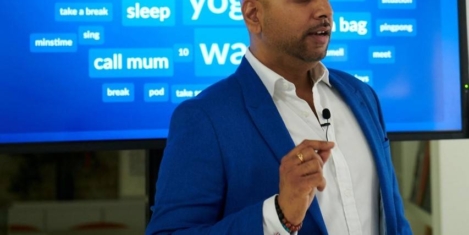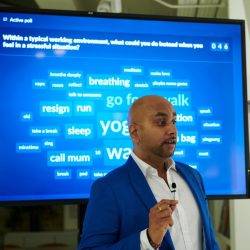To provide the best experiences, we use technologies like cookies to store and/or access device information. Consenting to these technologies will allow us to process data such as browsing behaviour or unique IDs on this site. Not consenting or withdrawing consent, may adversely affect certain features and functions.
The technical storage or access is strictly necessary for the legitimate purpose of enabling the use of a specific service explicitly requested by the subscriber or user, or for the sole purpose of carrying out the transmission of a communication over an electronic communications network.
The technical storage or access is necessary for the legitimate purpose of storing preferences that are not requested by the subscriber or user.
The technical storage or access that is used exclusively for statistical purposes.
The technical storage or access that is used exclusively for anonymous statistical purposes. Without a subpoena, voluntary compliance on the part of your Internet Service Provider, or additional records from a third party, information stored or retrieved for this purpose alone cannot usually be used to identify you.
The technical storage or access is required to create user profiles to send advertising, or to track the user on a website or across several websites for similar marketing purposes.
 Paid leave for new parents is a financial and operational challenge for 90 percent of UK SMEs, according to the findings of new research into the challenges faced by working women and their employers. The first ever Women in Business survey also claims that offering flexible working and covering the cost and resource of maternity and paternity leave is an even bigger concern for SMEs, with 96 percent of board level executives saying it’s a significant challenge for their business. (more…)
Paid leave for new parents is a financial and operational challenge for 90 percent of UK SMEs, according to the findings of new research into the challenges faced by working women and their employers. The first ever Women in Business survey also claims that offering flexible working and covering the cost and resource of maternity and paternity leave is an even bigger concern for SMEs, with 96 percent of board level executives saying it’s a significant challenge for their business. (more…)












 The economic performance of UK cities is increasingly dependent on the skills of their workforce. Cities across the UK face the challenge of both attracting and retaining high-skilled talent. The
The economic performance of UK cities is increasingly dependent on the skills of their workforce. Cities across the UK face the challenge of both attracting and retaining high-skilled talent. The 



















March 17, 2019
Time to unlearn the time management system you learned at school
by Steve Hartert • Comment, Technology
(more…)